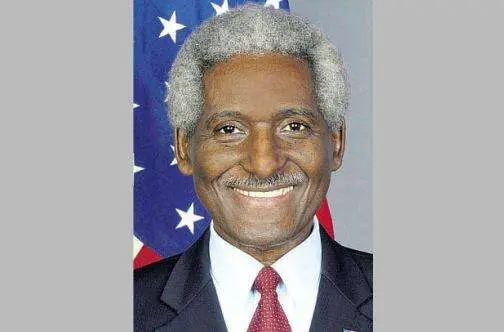
CBSI conference on in Barbados
BRIDGETOWN, Barbados (CMC) — A three-day Caribbean Basin Security Initiative (CBSI) conference began here Monday with Barbados urging regional countries to pay closer attention to the crime and security agenda agreed to by the regional leaders in 2013.
Attorney General Adriel Brathwaite, said he was also concerned that with the Caribbean Community leaders due to meet here later this week, not enough attention was being paid to establishing the crime and security strategy.
“We have the strategy, we have the organs that are supposed to implement the strategy, but it is my opinion that we are not giving the organs the wherewithal to implement it,” said Brathwaite, who is also Minister of Home Affairs.
Brathwaite was addressing the opening of the Customs and Border Protection Border Security Professional Exchange conference, being held under the theme ‘Information Sharing and Collaboration as a Strategy to Counter Transnational Criminal Organisations’.
He told delegates that regional governments had a responsibility to ensure that the vehicles used to implement the crime and security strategies in the region were given the necessary resources without totally relying on the United States or other international partners.
Brathwaite noted that the Advanced Passenger Information System (APIS) provided governments with advanced passenger information for every flight in and out of the region via the air and sea ports.
And he encouraged those countries which have not yet signed on — Montserrat, Haiti, Belize, Suriname and The Bahamas– to do so, as having all member states on board was important.
“It makes no sense not to have the legislative framework because it is important for us to have as much information as is relevant on individuals coming into the territory and leaving the territory.”
The attorney general pointed to the issue of foreign terrorist fighters, and those transiting the region, as another matter for consideration. However, he made it clear that governments should also take into account those persons who were citizens of the region but were going to fight in Syria and other countries.
“We have to reach a regional position on how to treat such individuals… because of the type of ideology and knowledge that they have [which] we don’t want to be fed to our general populace,” he suggested.
Meanwhile, US Ambassador Dr Larry Palmer gave the assurance that Washington remained committed to the pledges made to reduce illicit trafficking and promoting social justice.
He also urged regional states to reach out to the Joint Regional Communications Centre and share their challenges and successes, so their needs and progress could be known.
The Ambassador stressed that as long as the region “remained united against common enemies”, they would continue to keep communities safe.

























